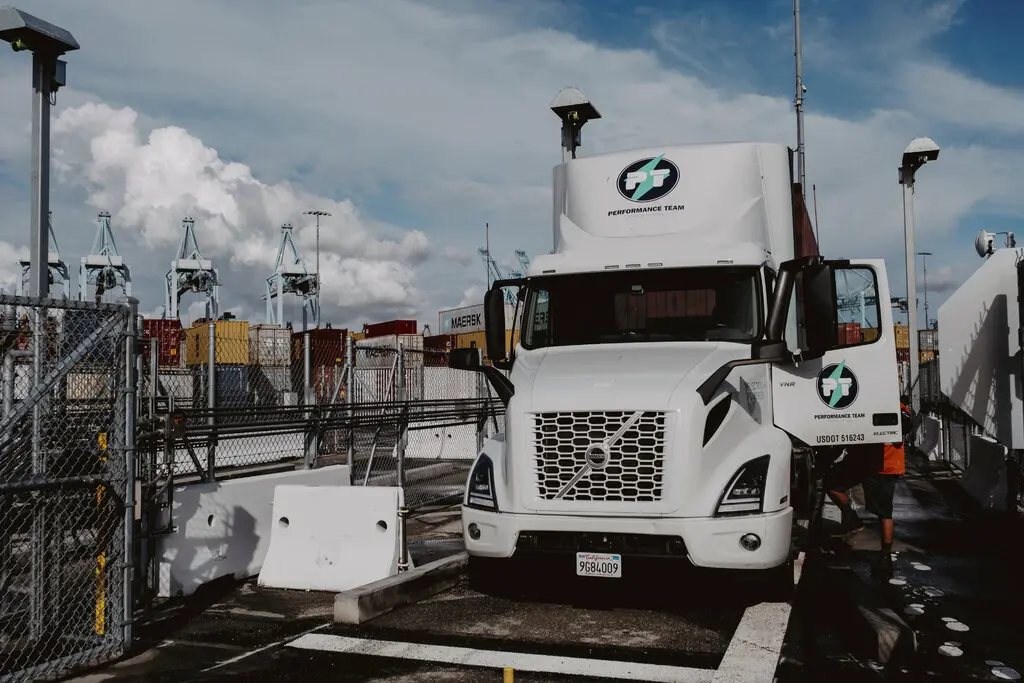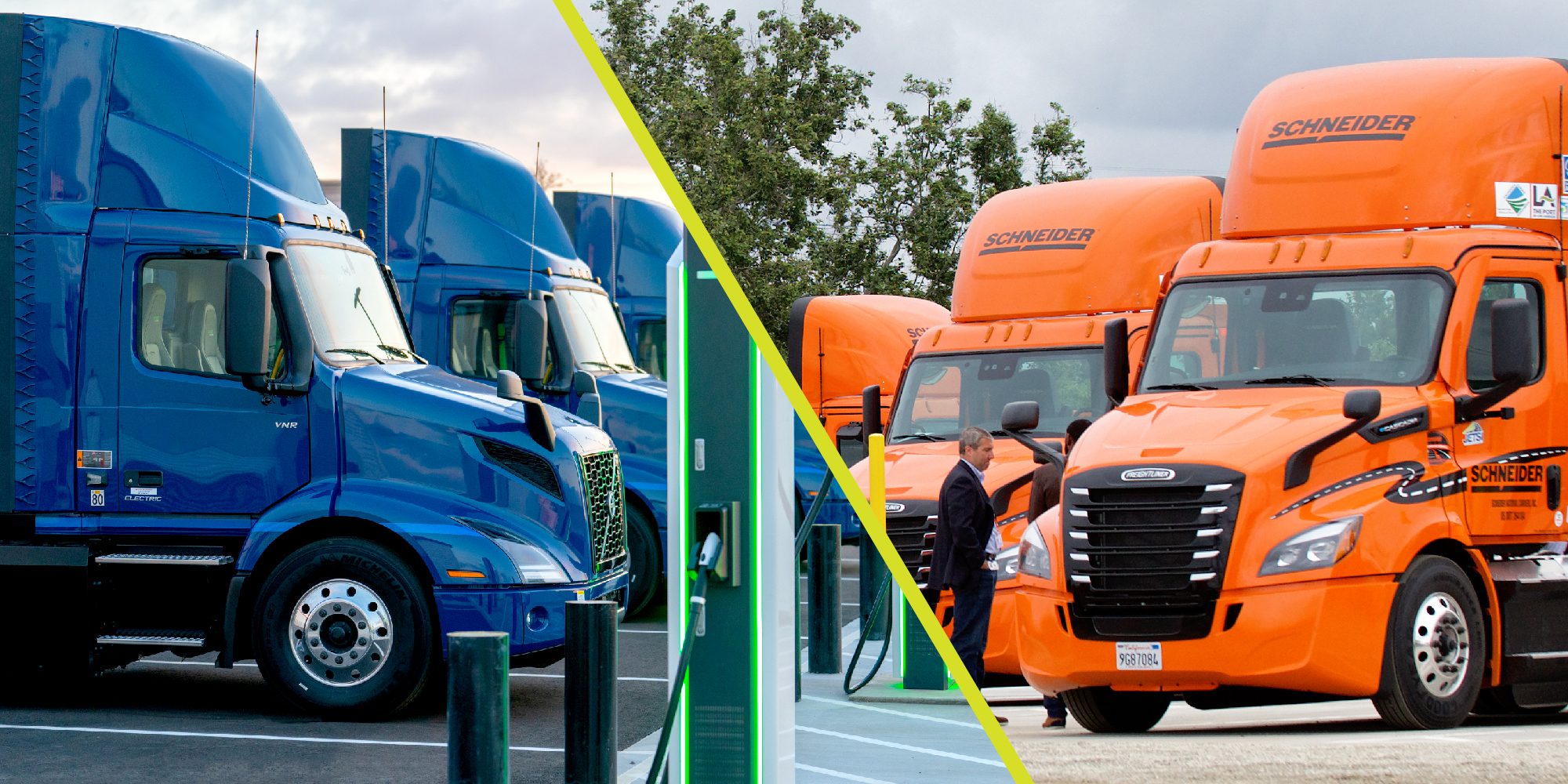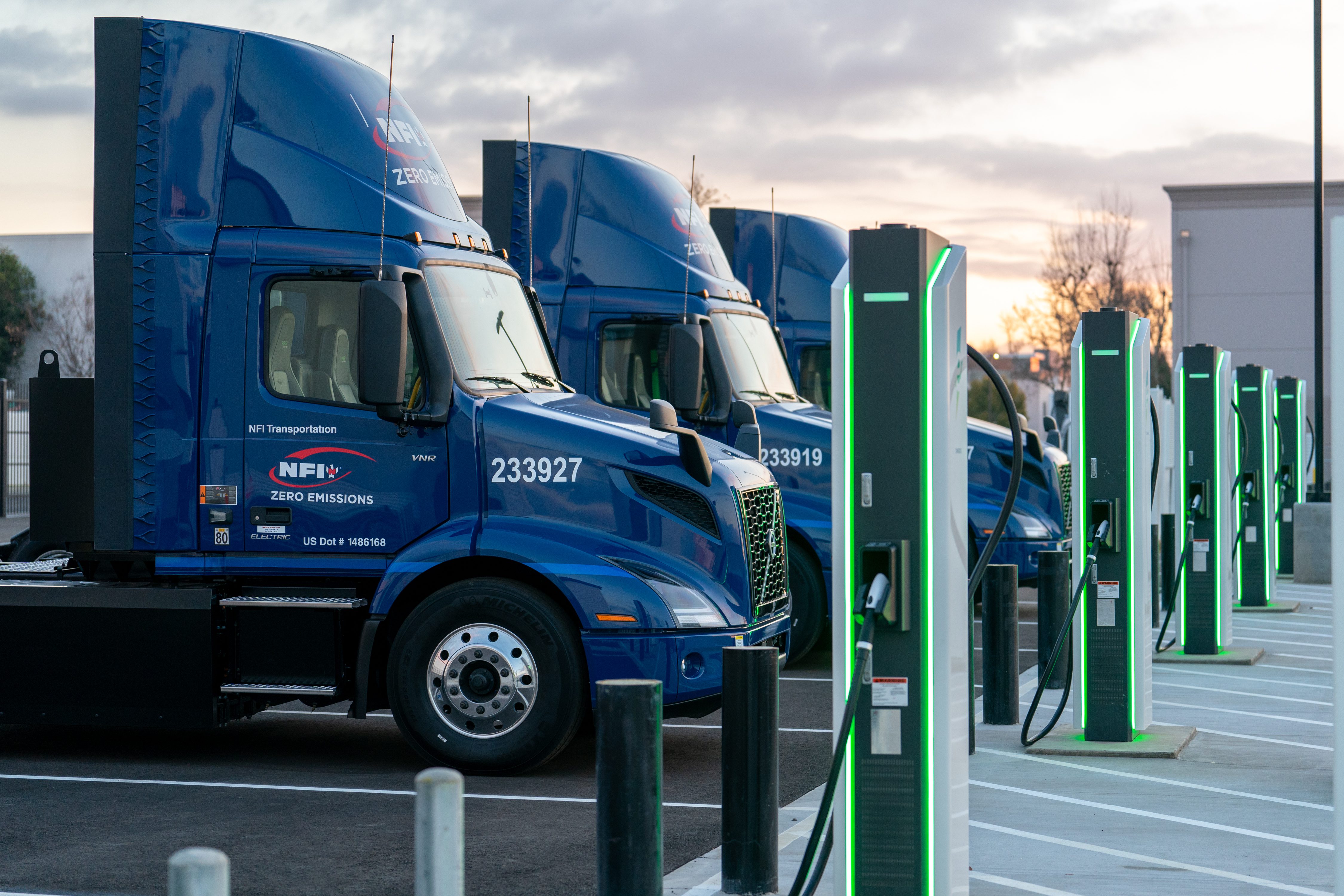The state will no longer require some truckers to shift away from diesel semis but hopes that subsidies can keep dreams of pollution-free big rigs alive.

President Trump’s policies could threaten many big green energy projects in the coming years, but his election has already dealt a big blow to an ambitious California effort to replace thousands of diesel-fueled trucks with battery-powered semis.
The California plan, which has been closely watched by other states and countries, was meant to take a big leap forward last year, with a requirement that some of the more than 30,000 trucks that move cargo in and out of ports start using semis that don’t emit carbon dioxide.
But after Mr. Trump was elected, California regulators withdrew their plan, which required a federal waiver that the new administration, which is closely aligned with the oil industry, would most likely have rejected. That leaves the state unable to force trucking businesses to clean up their fleets. It was a big setback for the state, which has long been allowed to have tailpipe emission rules that are stricter than federal standards because of California’s infamous smog.
Still, some trucking executives said they intended to keep deploying electric trucks.
“It doesn’t really have any impact on where we’re going,” said Jessica Cordero, a vice president at NFI Cal Cartage, a large logistics company. “We have our own initiatives and goals.”
NFI has 70 electric and 50 diesel trucks operating in California, and used grants to cover the cost of the vehicles. The electric fleet is turning a profit, Ms. Cordero said, in part because it costs less to fuel and maintain the vehicles.



